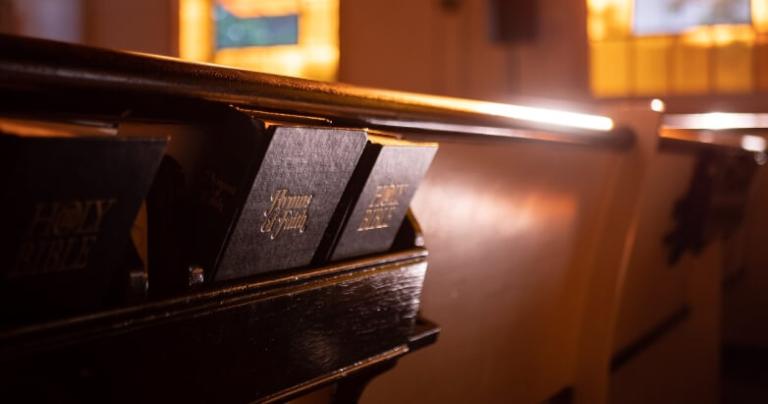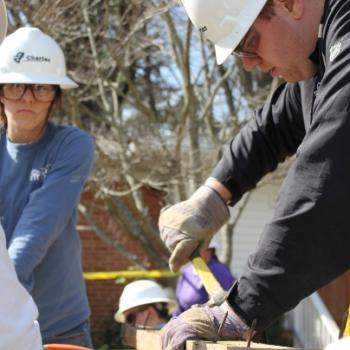If your church is ready for a new location, you’re probably wondering if it’s cheaper to buy or build. Your budget is likely allocated among many important causes, and you want to ensure you can maintain those duties while making your move.
With that in mind, here’s what you should consider when deciding how to proceed with your new church.
1. Distance
How far away are you willing to go from your current church? Distance is an important thing to consider when deciding whether to buy or build your next church. Where you want to be will largely influence the land or buildings available.
The larger radius you’re willing to search, the more options you will have. However, it’s necessary to consider your congregation.
Most churchgoers attend a place of worship no more than 15 minutes from home. Even if they say they will travel further now, that may change with time. Weather, age and family changes can make a difference in how far your members will go, so convenience is a major factor.
2. Budget
The property available is an important factor in determining how much sellers will charge. A nice building on rural land will cost more if abundant undeveloped lots are around it. The reverse is true in small areas, where the opportunity for an empty lot may be more valuable than purchasing an older building.
If you’re in a desirable area, you may need to spend more than half of your budget on land costs. For example, a 4,600-square-foot lot in Brooklyn, New York, costs more than $4 million. Meanwhile, a 6,200 sq. ft. home costs under $2 million. Upstate in Catskill, you can buy 4 ½ acres of developed land for under $170,000, while a home with more than 2,000 sq. ft. will cost you more than $400,000.
It’s also necessary to budget for hired labor, especially if you’re in an area with little competition. Other costs include materials and land development. Go over all of the potential costs before committing to a property.
3. Community
Consider potential newcomers in your community. While you want to cater to current congregation members, the church is also about opening the doors to welcome new faces to meet God and experience worship. If you move into an area that is hard to navigate, new people might not realize you’re there or be unable to find you.
Churches need to be open to those who struggle, but purchasing a less expensive property in a notoriously unsafe neighborhood or place with many natural threats probably isn’t the best idea–especially if you’re unfamiliar with the area.
It’s no secret that church attendance around the United States declined during the pandemic, and the rebuilding of in-person worship is slower than many ministers prefer. While online ministry is a valuable tool for people who cannot physically attend church, there is nothing like an in-person worship experience.
You want to attract as many people as possible. If picnics and outdoor activities are common in the community, having a property that accommodates that could be advantageous to welcoming new members.
4. Design
The design of your new facility might have more of an impact than you realize. Shiny, new churches can attract old friends for a Sunday or two, but what you include in the building design could revitalize the church experience.
The International Building Code recommends having at least seven square feet per person in areas with unfixed chairs. However, doubling or tripling is a common practice to make the church both breathable and navigable. While it’s unlikely anyone will demand having that much space around them, it improves the breathability and navigability of your sanctuary and other gathering places.
While you should think of your short-term congregational needs, what about long-term? Churches can be in a location for over a century with the right planning and luck, so choosing a place that can accommodate your expected growth rate is valuable.
All of this will determine what space you need and if any buildings currently on the market match what you desire, impacting your purchase price.
5. Worship Style
Whether you buy or build, you’ll likely want to customize your new church—however, the amount matters.
Every church is different, and worship styles depend on many factors. If you have a more contemporary worship style, you may find an old store or warehouse on the market where you can easily add your technology, stage and seating to make an enjoyable worship experience. If you prefer a more traditional look, the cost of creating a steeple and adding pews can add up to more than you expect.
Churches come in all shapes and sizes. The more unique you desire your building to be, the more beneficial a land purchase might be. Minor building renovations could cost a few thousand dollars, while a significant renovation project could be more than building from scratch.

Is It Cheaper to Buy or Build Your Church Building?
The answer to this question is unique to every church. Depending on location, member preferences, prospective growth and desired design, buying or building could be more beneficial. Keeping an eye on the market and listening to your community is vital to making the right decision for your congregation.
















